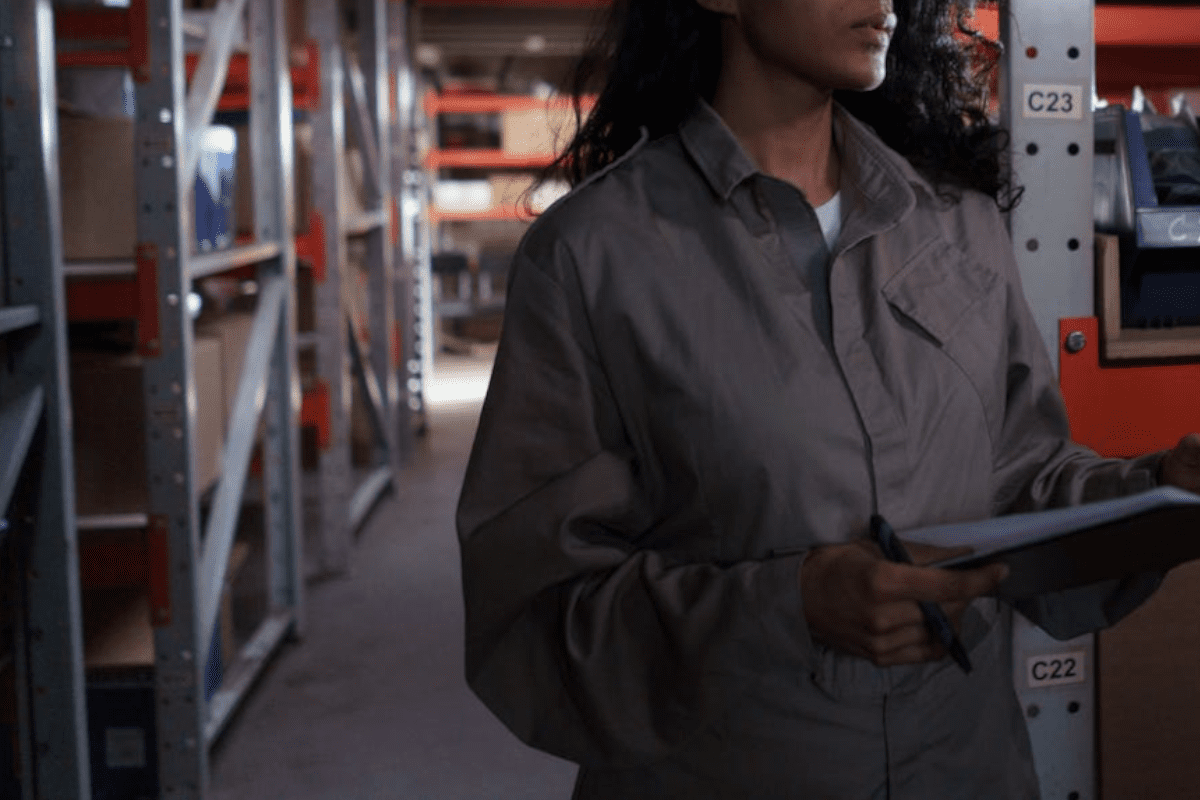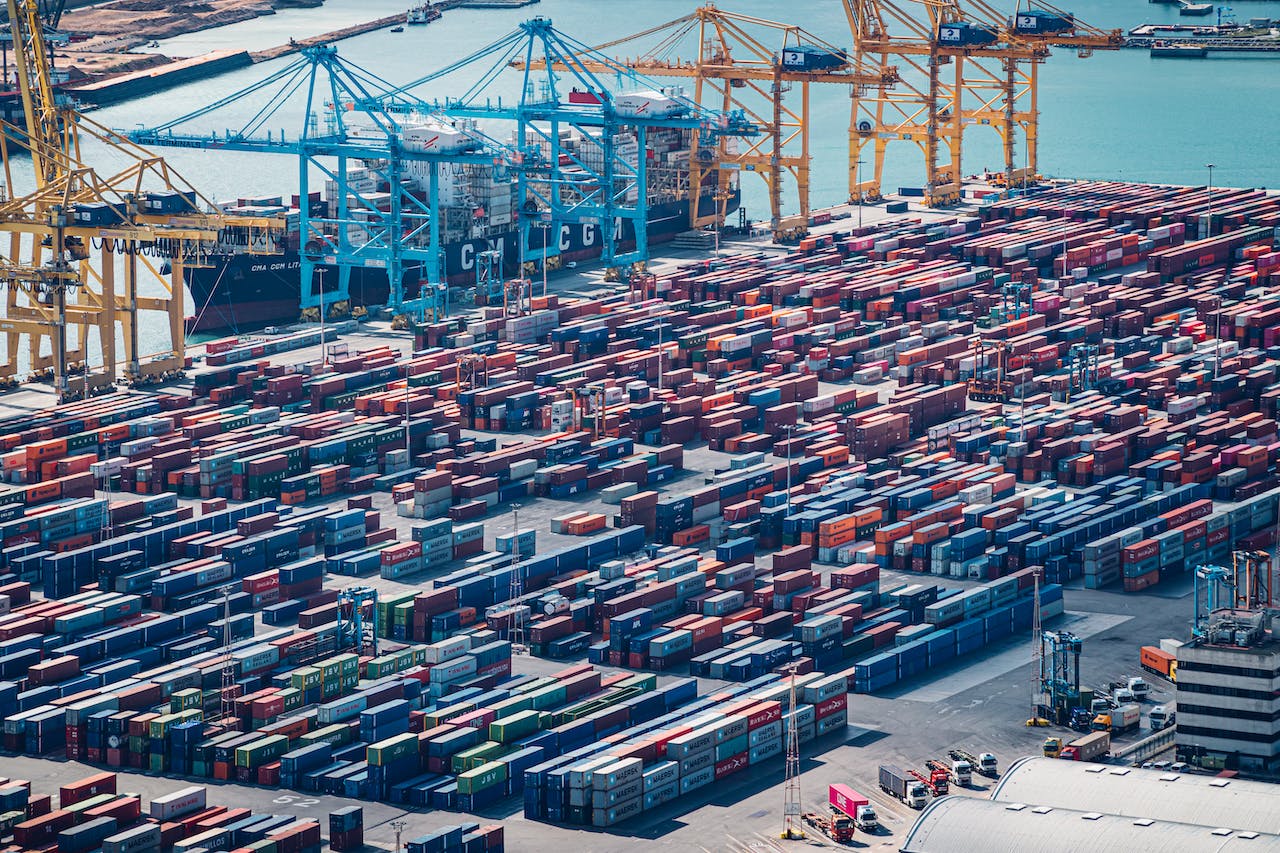When you think logistics, you likely think of men. It’s OK, you’re not alone. Picture the drivers, the dock workers, the ship’s crew, and for the most part, you’ll see men in those roles. Freight forwarding has historically been a male-dominated field, but in 2024 is it not time for change?
Thankfully, we’re seeing that change happen with an increasing number of women entering and thriving in the industry. Diverse perspectives lead to better problem-solving, innovation, and overall business success – freight forwarding is all the better for it.
The History of Women in Freight Forwarding
In truth, women have taken roles in freight forwarding throughout history, though they don’t always get the recognition they deserve.
In the 18th and 19th Centuries (yes, we’re going back a bit!), women were ship chandlers, running businesses that supplied provisions to ships, and making crucial decisions regarding logistics. They were canal boat operators, negotiating contracts and keeping the books; and they were pioneers of the early railways, as communication and coordination specialists.
Jump to the 20th Century and the Second World War, and women stepped into roles traditionally held by men, from lorry driving to working in shipyards – once more proving their capabilities in logistics and transportation. Once the way was over, some used that experience to launch their own businesses in the transport sector.
One such was Sarah Guppy, an entrepreneur and inventor of the 1800s whose innovative designs for bridges and piling systems were key to the infrastructure of the day. Without her, goods would not have moved so smoothly through the country – a woman after our own hearts!
Breaking the Glass Ceiling
The ‘glass ceiling’ applies to many industries – freight forwarding is just one. A metaphor for the invisible barrier that women have to pass through in order to advance to the higher roles of management, the glass ceiling is also used today to discuss pay inequality in the workplace. Its impact is significant and covers many areas:
Unconscious Bias and Stereotypes
Women are considered weaker, more emotional, more distracted, less able to make ‘hard’ decisions. It’s rubbish, of course, but those biases are hard to shake.
These preconceived notions can mean women aren’t tasked with some of the jobs their male counterparts are, leading to unfair gaps in their CVs and experience, and making progression harder.
And the women who display these ‘male’ characteristics? They can be condemned as angry women, harsh and unapproachable, or unfeeling. It’s a lose-lose situation for many.
Work-Life Balance
When businesses don’t create structures for women to balance home and life, especially as even today, women are largely the main caregivers in the family, women are often forced to choose between an opportunity at work and looking after their loved ones. This leads to more women in part-time roles that are harder to advance from.
Supportive workplace policies regarding flexible working, parental leave, and work-from-home opportunities are vital – and they help men, too, as when the company is considerate, men are also able to take a more active role at home.

Lack of Voice
Those women who do manage to reach senior roles find themselves surrounded by men. It can be harder for them to be heard as they are railroaded, ignored, or simply lacking the camaraderie backing they need. Instead of making the best use of a woman on the board, often it’s just ticking a boss for inclusivity.
Lack of Representation
There is a need for more female role models and mentors in the industry, who will inspire and guide the next generation of women in freight forwarding. Organisations like WISTA and CILT – Women in Logistics help, with communities for women to connect and support each other.
Unequal Pay
It’s long been known that women earn less than men, often in the same roles with the same responsibilities. Transparency and fair pay are essential to provide women with the same opportunities as men.
The Importance of Diversity in Freight Forwarding
On the other side of the coin, if men have been so successful in the world of freight for so long, do we really need women to step in? What are the benefits?
- Diverse perspectives – Women bring a different point of view, new experiences, and a range of unique problem-solving approaches to the table.
- Improving client relationships – When it comes to building rapport and trust with customers, women excel. With generally greater empathy and often superior patience, women tend to cultivate stronger, longer-lasting relationships.
- Company culture – The days of men slapping each other on the back while spewing out offensive banter are thankfully coming to an end. Company culture improves when respect increases, diversity is seen as normal, and everyone behaves more professionally – and not just to women.

How Millennium Cargo Supports Women in Freight Forwarding
With a workforce that’s close to 40% female, we’re doing better than many in the industry, but we can’t rest on our laurels. Millennium is committed to an unbiased, inclusive, and supportive work environment for all employees – regardless of gender.
Our policy of support for all staff means the career development of women within the company is unhindered by the glass ceiling. We’re proud to be breaking through.
Today, it is exciting to see the growing presence of women bringing their skills and experience to freight forwarding, making a positive impact in the industry with innovation and improvements that leave the attitudes of the last few centuries well and truly behind us.
Contact us at Millennium today to discuss the opportunities and career paths available for all.

